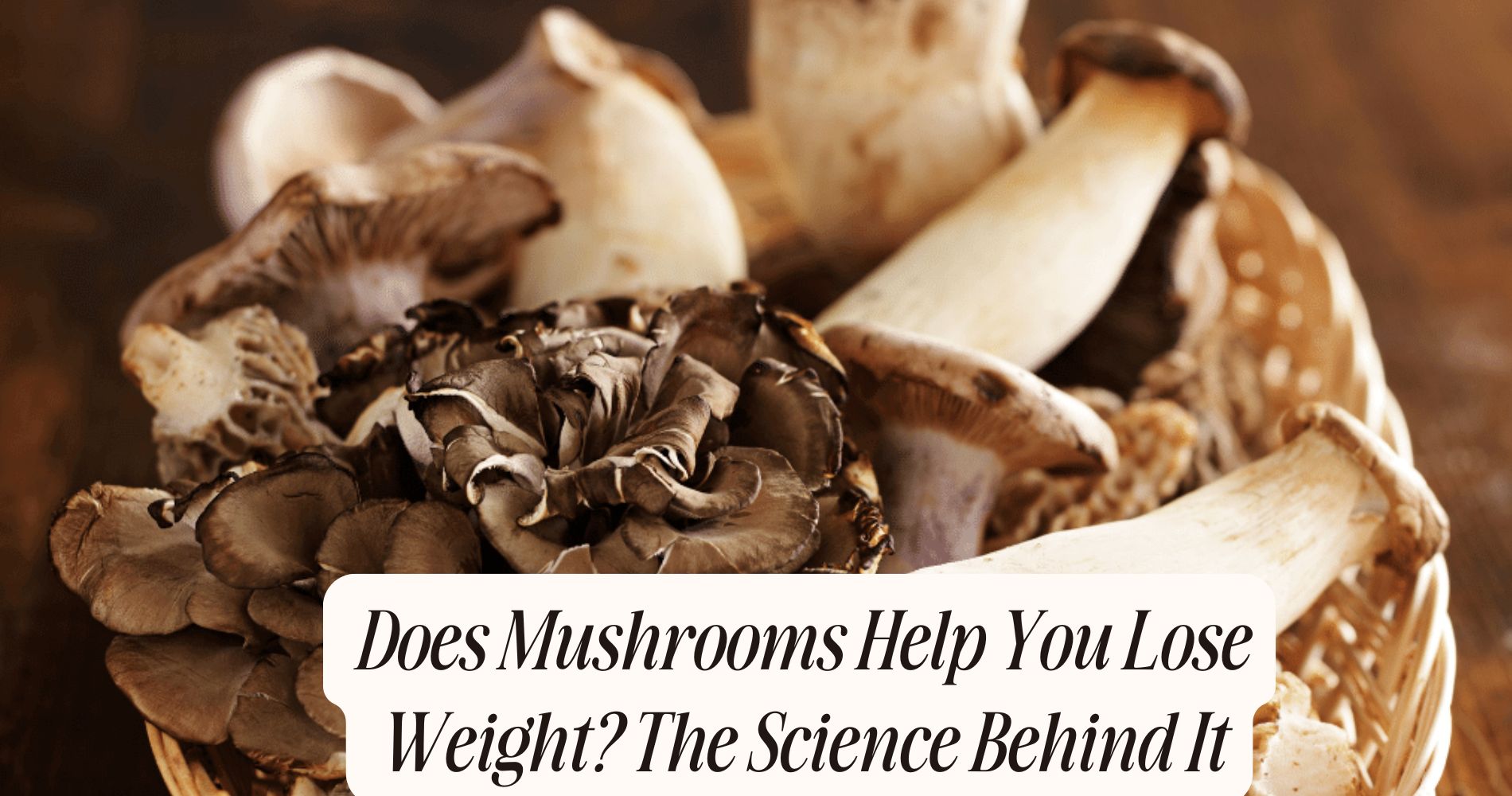
Are Mushrooms Bad for Gout? What Experts Say
Are mushrooms bad for gout? Experts contend that mushrooms, due to their moderate purine content, are generally safe for those managing gout. While purines can elevate uric acid levels, mushrooms don't greatly impact this compared to high-purine foods like red meat. Nonetheless, individual responses vary, and consulting with healthcare providers is advisable to tailor dietary guidelines. Maintaining a balanced diet while monitoring purine intake is essential, and further exploration will provide more detailed insights into dietary considerations.
Understanding Gout and Its Triggers
Gout, a form of inflammatory arthritis, is characterized by sudden and severe pain, redness, and swelling in the joints due to the accumulation of urate crystals. As someone managing gout, you're familiar with these debilitating symptoms.
The clinical presentation often involves the metatarsophalangeal joint of the big toe, although other joints may be affected. Understanding the dietary influences that exacerbate these symptoms is vital.
Foods high in purines, such as red meat, shellfish, and alcohol, can elevate uric acid levels, aggravating gout symptoms. While mushrooms are often discussed in relation to gout, it's important to evaluate their purine content and overall impact on your condition.
Evidence-based strategies, including dietary modifications, are key to mitigating these painful episodes effectively.
The Nutritional Profile of Mushrooms
Mushrooms, often lauded for their culinary versatility, possess a rich nutritional profile that merits examination, especially for those managing gout.
You'll find that different mushroom varieties, such as shiitake, portobello, and white button, offer distinct health benefits. These fungi are low in calories and rich in essential nutrients, including vitamins B and D, selenium, and antioxidants.

They contribute to immune system support and exhibit anti-inflammatory properties, which could be beneficial for gout management. Importantly, their fiber content aids digestion and metabolic health.
While mushrooms can be a nutritious addition to the diet, it's vital to evaluate their overall impact on your specific health needs. Consult a healthcare professional to understand how these mushroom varieties fit into your dietary plan for gout.
Purines: What Are They and Why They Matter
When managing gout, understanding purines is vital due to their direct impact on uric acid levels in the body. Purines are organic compounds found in various foods, known as purine sources, and naturally occurring in your cells.
During purine metabolism, these compounds break down into uric acid. Elevated uric acid can lead to crystal formation in joints, causing painful gout flares. Clinically, controlling purine intake is fundamental for gout management.
Common purine sources include red meat, seafood, and some vegetables. Monitoring these can help modulate uric acid production. While purine metabolism is a natural process, individuals with gout must be mindful of dietary choices to mitigate symptoms.
It's important to consult healthcare providers to tailor dietary strategies effectively.
How Purines in Food Affect Gout
Although dietary choices play a significant role in managing gout, understanding how purines in food affect the condition is essential.
When you consume purine-rich foods, your body breaks them down through purine metabolism, leading to the production of uric acid. In individuals with gout, this process can result in elevated uric acid levels, contributing to crystal formation in joints and subsequent inflammation and pain.

Foods with high purine content, such as red meats and certain seafood, can exacerbate these symptoms. Evidence-based studies highlight that dietary impacts are substantial, emphasizing the need for a well-managed diet.
The Debate Over Mushrooms and Gout
In managing gout through dietary modifications, the role of specific foods remains a topic of significant interest. Among the foods under scrutiny are mushroom varieties, which some argue could exacerbate gout symptoms.
The primary concern stems from purine content, as purines metabolize into uric acid, potentially triggering gout flares. You might wonder if all mushroom varieties should be avoided.
However, dietary guidelines don't universally restrict mushrooms for gout patients. Clinical evidence suggests that the purine content in mushrooms is moderate, and they may not substantially impact uric acid levels compared to high-purine foods like red meat or seafood.
It's essential to take into account individual tolerance and consult a healthcare provider to tailor dietary guidelines to your specific condition and needs.
Recent Scientific Studies on Mushrooms and Gout
Emerging research sheds light on the relationship between mushrooms and gout, offering new insights into dietary management for those afflicted.
Recent studies in gout research investigate various mushroom varieties and their purine content. Purines, when metabolized, produce uric acid, which can exacerbate gout symptoms. Certain mushroom varieties, such as shiitake and portobello, display moderate purine levels, suggesting a controlled intake may be advisable.

Clinical investigations reveal that while mushrooms have beneficial nutrients, their moderate purine content necessitates cautious consumption. Researchers recommend evaluating individual response to mushrooms, as gout management is highly personalized.
Current studies focus on understanding how different mushroom varieties influence uric acid levels, aiming to refine dietary guidelines. This evidence-based understanding aids in forming a thorough approach to gout dietary strategies.
Expert Opinions on Including Mushrooms in a Gout Diet
Experts in the field of gout management emphasize that, while mushrooms can be included in a gout-friendly diet, it's crucial to monitor their intake carefully.
Various mushroom varieties, such as shiitake and portobello, contain differing purine levels, which can influence uric acid production. Evidence-based dietary recommendations suggest that moderate consumption of low-purine mushrooms may not exacerbate gout symptoms noticeably.
Clinical guidelines often advise patients to limit high-purine foods, focusing instead on balanced dietary patterns. A clinical perspective highlights the importance of individualizing dietary recommendations based on each person's unique health profile and response to certain foods.
Consulting with healthcare providers can help you determine which mushroom varieties are safest and most suitable for your condition, ensuring effective gout management.
Alternative Low-Purine Food Options
Curiously, how can you diversify your diet while managing gout effectively? You should focus on incorporating foods rich in plant-based proteins and low purine vegetables.
Evidence suggests that foods like lentils, tofu, and quinoa provide essential amino acids without the high purine content found in animal proteins. Studies support that these plant-based options help maintain nitrogen balance and reduce uric acid levels, beneficial for gout management.
Additionally, low-purine vegetables like bell peppers, zucchini, and carrots are clinically recommended. These vegetables aren't only low in purines but also provide antioxidants and fiber, contributing to overall metabolic health.
Tips for Managing Gout Through Diet
When managing gout through dietary modifications, understanding the role of purine metabolism is essential. Elevated purine intake leads to increased uric acid production, exacerbating gout symptoms.
Incorporate gout friendly recipes that prioritize low-purine foods like cherries, celery, and whole grains. These ingredients may help reduce uric acid levels. Opt for lean proteins such as tofu, chicken, or fish, which are less likely to trigger flare-ups compared to red meat.

Consider dietary supplements with proven efficacy, such as vitamin C, which can lower serum uric acid, or omega-3 fatty acids for their anti-inflammatory properties.
Additionally, stay well-hydrated to promote renal excretion of uric acid. By making these evidence-based dietary changes, you can effectively manage gout symptoms and improve your quality of life.
Enjoy the Benefits of Mushrooms Without the Worry
Concerned about mushrooms and gout? With Well Gummies 10-IN-1 Mushroom Gummies, you can enjoy the brain-boosting, energy-enhancing, and immune-supporting benefits of 10 functional mushrooms, including reishi, in a convenient, chewable form. These vegan gummies deliver calmer energy and sharper focus—without worrying about purine levels. Plus, they taste like fresh wild berries, as delicious as your favorite candy, with no jitters or crash. Get the wellness benefits you need, guilt-free!
Frequently Asked Questions
Can Cooking Methods Reduce the Purine Content in Mushrooms?
You wonder if cooking methods can reduce purine content in mushrooms. Clinical evidence suggests that specific cooking techniques, like boiling, may facilitate purine reduction. This technique can potentially decrease purine concentration, thereby mitigating gout symptoms' exacerbation.
Are There Specific Types of Mushrooms With Lower Purine Levels?
You're wondering about mushroom varieties and their purine levels. Evidence suggests that not all mushrooms contain the same purine levels. For instance, button mushrooms tend to have lower purine content compared to shiitake or portobello varieties.
How Does Alcohol Consumption Interact With Mushroom Intake for Gout Sufferers?
Alcohol effects on gout can exacerbate symptoms, especially when combined with certain mushroom varieties. Avoid high-purine mushrooms and limit alcohol intake to reduce gout flare-ups. Clinical evidence suggests moderation is key for managing symptoms effectively.
Can Mushroom Supplements Trigger Gout Flare-Ups?
You should evaluate mushroom types and supplement safety. Some mushrooms contain purines, potentially triggering gout flare-ups. Clinical evidence suggests avoiding high-purine varieties. Consult healthcare professionals before adding supplements, ensuring they're safe and won't exacerbate your condition.
Are There Any Natural Remedies to Counteract Mushroom-Induced Gout Symptoms?
You can manage mushroom-induced gout symptoms by considering natural alternatives like cherry extract and increasing water intake. Dietary adjustments, such as reducing purine-rich foods, play an essential role. Consult a healthcare professional for personalized, evidence-based guidance.
Conclusion
In managing gout, you should be cautious about your purine intake. Although mushrooms contain purines, they're relatively low compared to other foods. Recent studies suggest that moderate consumption of mushrooms doesn't greatly impact gout risk. However, individual responses can vary, so it's essential to monitor your symptoms. Consult with healthcare professionals to tailor your diet effectively. Opt for low-purine alternatives and maintain a balanced diet to help manage gout symptoms effectively and improve your overall health.




